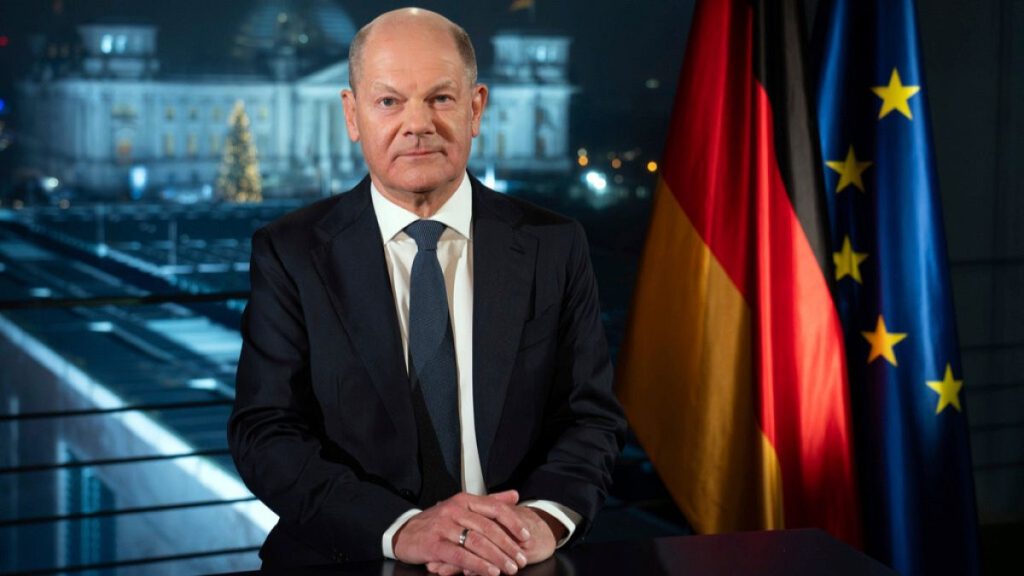Chancellor Olaf Scholz’s New Year’s Eve address carried a weighty message, emphasizing the power residing in the hands of German citizens to shape their nation’s future, particularly in the face of external influences and divisive events. His words resonated with a call for unity and a rejection of extremism following a recent tragic attack in Magdeburg. The address served as a direct counterpoint to recent endorsements of the far-right Alternative for Germany (AfD) by influential figures like Elon Musk, highlighting a growing concern about external interference in German politics and the amplification of extreme voices through social media.
Scholz underscored the importance of informed civic engagement, contrasting the reasoned judgment of the majority with the amplified voices of extremism often found on social media platforms. He explicitly stated that the outcome of Germany’s upcoming elections rested with the citizens, not with the owners of social media channels. This pointed remark was widely interpreted as a response to Musk’s public support for the AfD, a party under scrutiny by German authorities. The Chancellor’s assertion aimed to reclaim the narrative of democratic decision-making from the sway of potentially manipulative online discourse.
The Chancellor’s address placed particular emphasis on the spread of disinformation following the Magdeburg Christmas market attack. He cautioned against the divisive nature of unchecked rumors and conspiracy theories, highlighting their potential to weaken the fabric of German society. Scholz’s call for unity underscored the importance of relying on verified information and resisting the temptation to jump to conclusions, especially in the wake of a tragedy. This appeal for reasoned discourse served as a direct counter to the often polarizing rhetoric employed by the AfD and its supporters.
The backdrop of the Magdeburg attack and its subsequent exploitation by the AfD formed a crucial context for Scholz’s New Year’s message. The attack, allegedly perpetrated by an individual with a complex background and motivations, was quickly seized upon by the AfD to further their anti-immigrant narrative. Scholz’s address implicitly cautioned against simplistic interpretations of the event, emphasizing the need for thorough investigation and a nuanced understanding before drawing conclusions. This cautious approach contrasted sharply with the AfD’s immediate attempts to politicize the tragedy.
The Chancellor’s address also highlighted the growing concern over the role of social media in shaping political discourse and potentially influencing election outcomes. Elon Musk’s endorsements of the AfD, coupled with his criticism of German authorities and calls for Scholz’s resignation, triggered widespread criticism and accusations of interference in German domestic affairs. Scholz’s statement about citizens, not social media owners, deciding Germany’s future served as a clear rebuke to such external influences. It underscored the importance of maintaining the integrity of democratic processes against potential manipulation by powerful individuals or platforms.
In the aftermath of the Magdeburg attack and amidst the escalating political rhetoric, Scholz’s New Year’s address delivered a powerful message of unity, resilience, and democratic self-determination. His emphasis on citizen agency contrasted sharply with the growing influence of social media and the amplification of extreme voices. The Chancellor’s call for reasoned discourse and his rejection of divisive narratives served as a much-needed appeal for calm and unity in a nation grappling with complex challenges. The address effectively framed the upcoming elections as a choice between the reasoned judgment of the citizenry and the potentially disruptive influence of external forces and online extremism.














